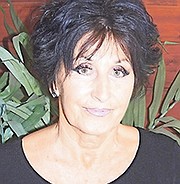By VICTORIA SARNE
Failure – a word that seems to have its own dark cloud hanging around it and one which is bandied about as being some kind of awful low point which might define us for a very long time. If we allow ourselves to think that way, inevitably we will become depressed, feel inadequate, scared or embarrassed, or too ashamed to have another go at whatever it was we were trying.
We can’t control the universe, but we can control how we react at any given moment. Our initial reaction may be anger, sadness, grief, disappointment or frustration, this is part of the normal adjustment process. But then we must take a more objective viewpoint by not getting caught up in the enormity or confusion of the situation or giving in to an exaggeration of our fears and sense of failure. Instead, we must calm ourselves, think rationally and realistically and see whether the particular idea or project can be salvaged, should be abandoned or if there is another workable approach to arrive at clarity or a solution. I don’t believe there is any such thing as total failure.
I look at it as a challenge to learn something about ourselves. Even if we have been unsuccessful in reaching a specific outcome or target, there is always something positive to take away. In fact, I do believe that our greatest lessons are learned not from success but from failures, painful as they may be. We may see where we made a mistake; or how a different approach should have been used; or perhaps the timing was off. Any number of factors may contribute to not obtaining personal or professional goals, circumstances change.
Failure gives us a whole new set of challenges and how we react to them defines us. This is what I call “falling forward”. So you fell down? Now you have to get up by looking ahead, not backwards; you are not going that way.
Here’s an example. I have had more than one personal and professional failure and, devastating as they were at the time, eventually I could see not only where I had gone wrong and how to remedy it, but more importantly how a whole different set of options were presenting themselves.
At age 50 I lost all those things which normally define a life: my business, a big chunk of the money invested in that, my very nice house and everything in it (paid for by me). I was simultaneously getting divorced and my children were estranged from me. Having all the benchmarks removed from my life I branded myself a failure on all fronts. I felt isolated, devastated, frightened and sadness seemed like a bottomless pit that I might not be able climb out of. Part of the process was the grieving for the loss of those things that are considered individually as major stress factors but were all lumped together for me.
I had one good thing going for me – I had been raised to be stoical in the face of adversity and never to give in to negativity, no matter how hard the struggle or how long it took. So eventually, I calmed the panic to a dull roar, mopped up the tears and evaluated my current situation.
Suddenly it occurred to me that the other side of loss is freedom to start again. I was literally free of any burdens, duties or expectations. I had no property to take care of, no professional or family duties so I could do or go wherever I wanted. What did I want the most? I remembered a childhood dream, to live on a tropical island; why not? Nothing in the world to stop me except my own inhibitions. I had a very small insurance policy and some jewellery so I cashed in and serendipitously met someone who offered me work in St Kitts, which I took even though I had never previously travelled alone or worked in a foreign country. The failures had given me the opportunity to rebuild my life, and here I am all these years later.
“The journey of a thousand miles begins with one step.”
• Victoria Sarne is an entrepreneur and writer. She headed a team to establish a shelter for abused women and children in Canada and was its first chairwoman. You can reach her at victoria.conversations@gmail.com, or visit www.lifelineswritingservice.com.





Comments
Use the comment form below to begin a discussion about this content.
Sign in to comment
OpenID